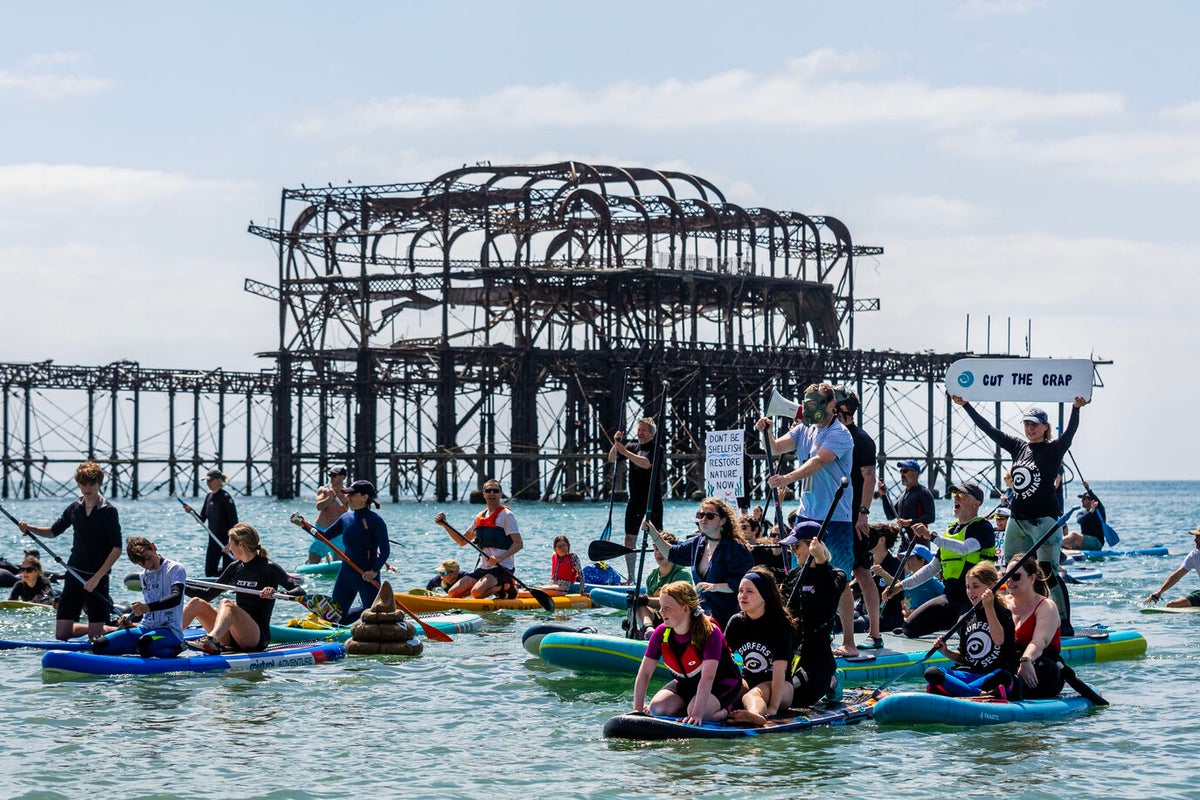Thousands of people voiced their anger of the spilling sewage into UK waters at dozens of “paddle out” protests held across the country.
At more than 40 beaches, rivers and lakes across the UK, people armed with boards and placards take to the water to demand urgent reform of the water industry in events organised by the campaign group Surfers Against Sewage.
It comes as new Opinium polling suggested that fewer than one in five people believe they will able to swim safely at their local bathing spot by 2030 without risking their health as a result of sewage pollution.
And the survey of 2,000 people found just 21 per cent of respondents trusted the government to ensure water suppliers reduce sewage spills, with more than half a million discharges into our seas, lakes and rivers in 2024.
Data released by the Environment Agency in March showed water companies released a record amount of raw sewage into England’s rivers and seas last year. The Independent Water Commission is currently reviewing its evidence before making recommendations to government on reforming the water industry.
Stuart Davies, an organiser of the Brighton protest, said: “We are paddling out because we seem to be in the same place each year. We see record levels of sewage pollution in our blue spaces, especially here on the south coast.

“Many a time, I have been personally affected. I can’t go sea swimming. I can’t go surfing. I also volunteer for the Wave Project which provides surf therapy for young people. That’s been cancelled a few times, and we couldn’t go in the water. It makes me extremely angry.
“We are paddling out in protest of the scandal and to call for total reform of the water industry.”
The Independent recently donated £20,000 to Surfers Against Sewage to help support the group’s work, as new figures revealed the number of beauty spots deemed unfit for swimming because of sewage had doubled in a year.
Of England’s 451 protected bathing spots, 37 are now rated as poor – the lowest category – because they contain unsafe levels of potentially deadly bacteria, including E coli and intestinal enterococci, due to sewage spills.




